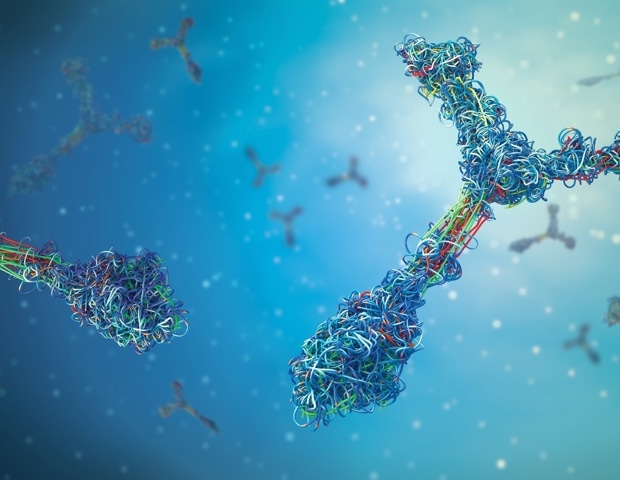
Your blood is a fragile combination. Researchers and clinicians typically use blood to study what is going on on inside our our bodies, partially as a result of siphoning off a tube of blood is simpler and fewer painful than taking biopsies of an inner organ.
However in some instances, it seems that blood might be very totally different exterior our our bodies. In terms of sure rising analysis methods, the clock begins ticking as quickly as your blood hits the tube. As little as six to eight hours later, some elements of your blood’s molecular composition can have modified to the purpose that the experiment would give fully totally different outcomes.
If a affected person or analysis examine volunteer is having a blood draw at or close to a analysis facility that may carry out one of these experiment on-site, that point delay does not come into play. However for analysis research or medical trials that hope to enroll sufferers and volunteers in rural areas or draw blood at clinics with out an hooked up high-tech laboratory, dashing the blood samples to the processing web site turns into an issue. Most medical pattern assortment happens close to main analysis hubs, limiting our understanding of underserved and socio-economically disadvantaged communities.
A brand new method, referred to as CryoSCAPE, developed by researchers on the Allen Institute for Immunology, a division of the Allen Institute, goals to cease that clock, decrease experiment prices to broaden the attain and utility of those cutting-edge applied sciences for blood attracts. The tactic makes use of a easy chemical combination, pre-packaged in a small tube, to place blood into a sort of “suspended animation,” defending it from harm throughout freezing and preserving these delicate molecules of their pure state.
This new scalable immune profiling expertise is described in a just lately revealed examine within the Journal of Translational Drugs.
“Just about all medical trials run by biopharmaceutical corporations will accumulate blood at one web site, however then they need to ship the blood in a single day to a centralized processing web site,” mentioned Peter Skene, Ph.D., director of excessive decision translational immunology on the Allen Institute for Immunology, who is among the builders of the brand new method. “We wished to resolve this downside by creating a technique that enables fast blood stabilization on the bedside.”
The method goals to broaden the attain of a category of experiments often known as single-cell applied sciences, which seize the precise molecular composition of hundreds or extra of a affected person’s particular person cells, one cell at a time. As these single-cell strategies enhance in use within the analysis world and in the end make their method to medical use, a blood stabilization approach like this might assist enhance the accuracy of experimental outcomes and produce single-cell strategies to analysis in numerous human populations.
“This system means that you can, in a manner, hold the pattern on the stage it was when the affected person first gave blood,” mentioned Lisa Forbes Satter, M.D., an immunologist and pediatrician at Baylor School of Drugs and Texas Youngsters’s Hospital who collaborates with researchers on the Allen Institute to review uncommon immune-deficiency problems. “It could be a sport changer for establishments and clinics that do not have numerous assets.”
The commonest of the rising single-cell applied sciences is called single-cell RNA sequencing, a method that reads out the genes switched on or off in a cell by capturing details about every particular person cell’s full suite of RNA molecules. RNA is especially finicky – the Allen Institute workforce discovered that simply six hours after blood assortment, RNA sequencing knowledge are fully totally different from these in cells analyzed proper after a blood draw. However the brand new manner of stabilizing blood might be helpful for different functions too, its creators say, as a result of it retains the cells alive and near their pure state within the physique.
The Allen Institute workforce’s method additionally scales up the single-cell experiments, to the purpose that they will now course of a whole bunch of blood samples directly. The expertise might be used to broaden the attain of immunology research on the Allen Institute and elsewhere, Skene mentioned. The tactic would decrease the boundaries to taking part in analysis research as a result of blood might be drawn at neighborhood clinics or pop-up websites, eliminating the necessity for volunteers to journey to a analysis laboratory. Skene and his colleagues hope these lowered boundaries might result in elevated enrollment of members of underserved communities in analysis research and medical trials. The workforce additionally plans to make use of the method to assist streamline and develop medical trials carried out by biopharmaceutical corporations, people who usually must ship blood samples to a centralized lab for evaluation.
As a workforce, we have developed numerous thrilling however difficult new approaches, however we additionally must make these approaches accessible. Now we’re working to open entry to this expertise, to get to a degree the place we will even have broader impression.”
Julian Studying, senior supervisor of circulate cytometry, Allen Institute for Immunology
Supply:
Journal reference:
Heubeck, A. T., et al. (2025). CryoSCAPE: Scalable immune profiling utilizing cryopreserved complete blood for multi-omic single cell and practical assays. Journal of Translational Drugs. doi.org/10.1186/s12967-024-06010-z.

